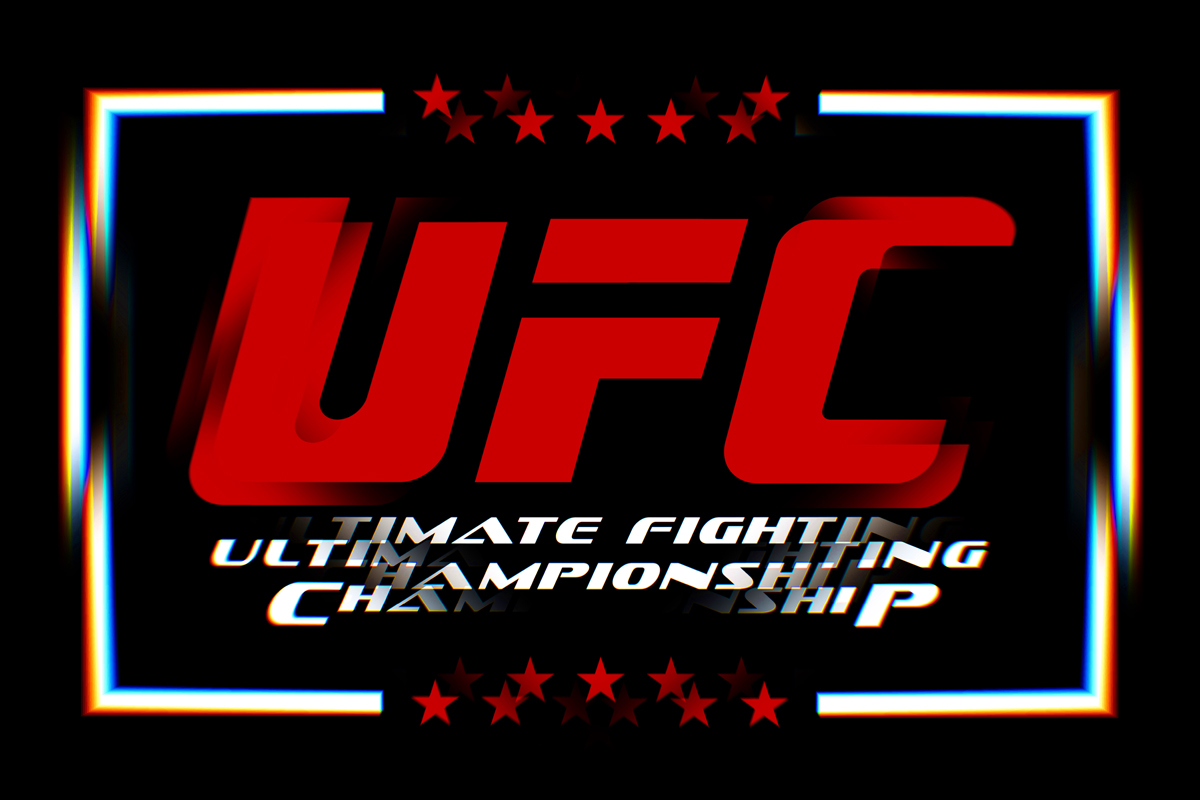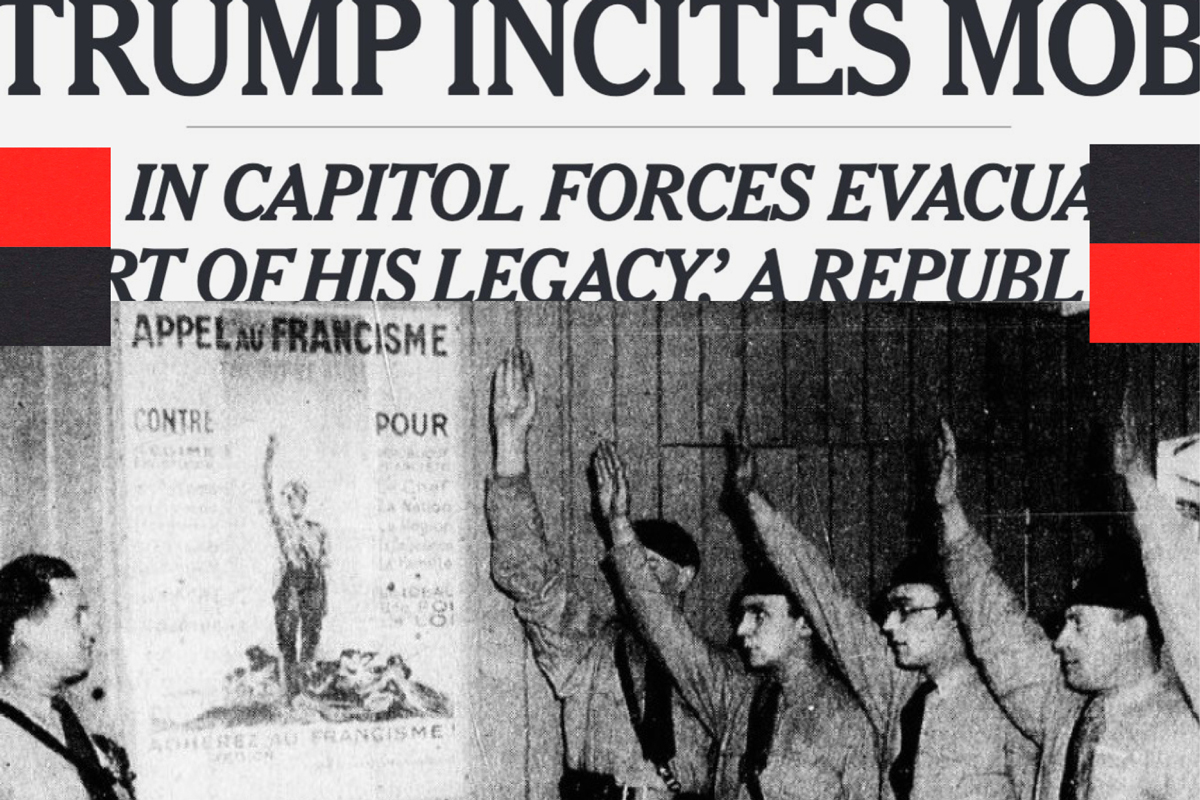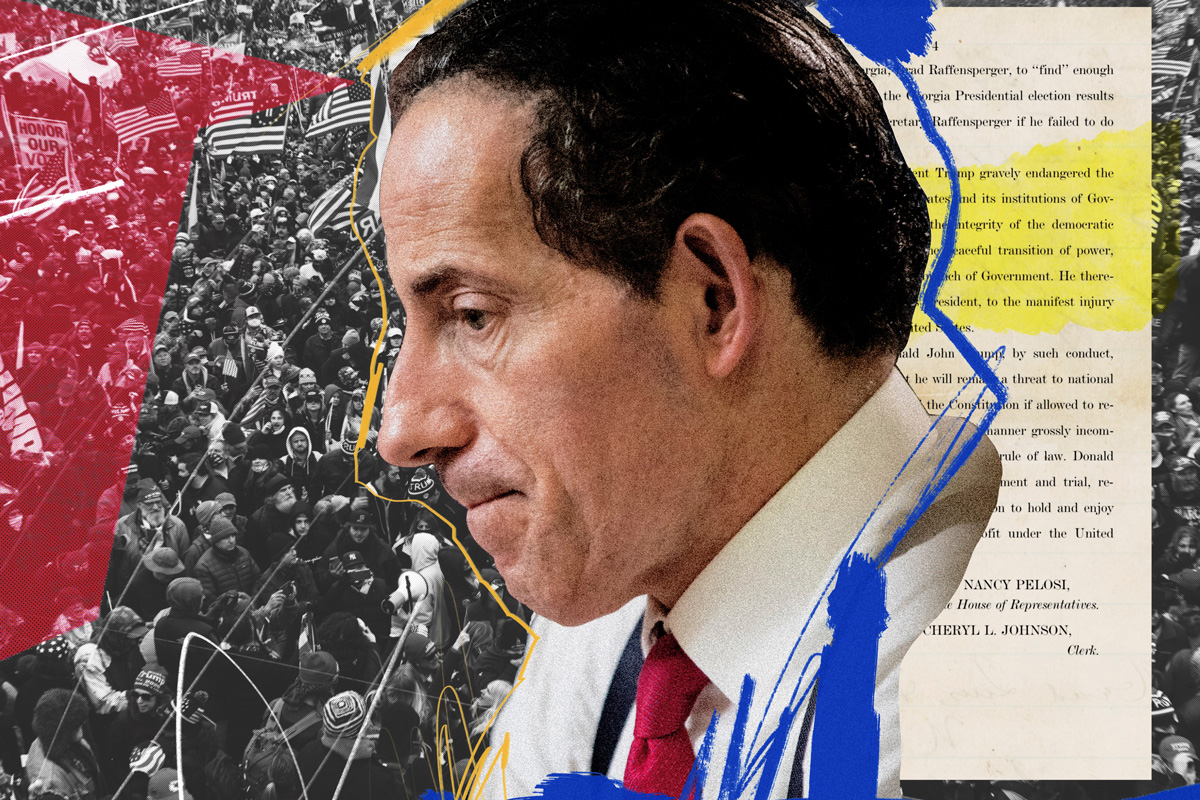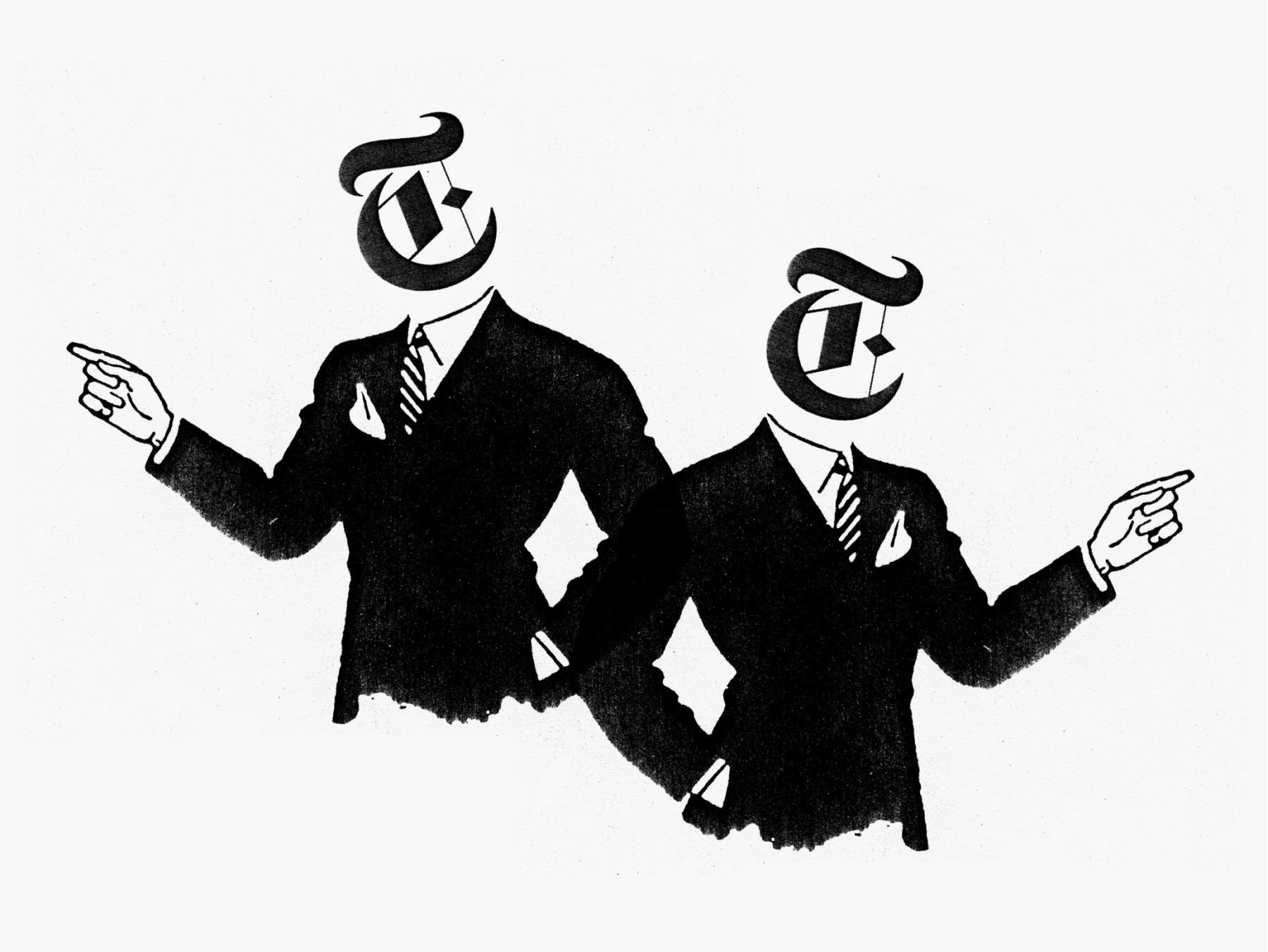On Nov. 10, 2021, Scott Fairlamb—an imposing, bearded man who once competed as a mixed martial arts fighter—became the first person to plead guilty to assaulting a police officer during the Jan. 6 U.S. Capitol insurrection. He was sentenced to 41 months in prison, one of the most severe punishments handed down to any of the nearly 700 people charged in the riot.
Fairlamb, whose brother is a Secret Service agent formerly assigned to Michelle Obama, was reportedly among the first people to storm the Capitol. Prosecutors allege that he made it into the Senate side of the building as part of the initial surge of people on the Capitol grounds. The former MMA fighter could be heard on video shouting at officers: “Are you an American? Act like it!” before shoving one of them and punching him in the helmet. He was arrested in January 2021 after several people sent tips to the FBI.
Fairlamb’s guilty plea also sets a precedent for how insurrectionists charged with violence may be punished. More than 200 people have been charged with assaulting, resisting or interfering with officers. However, only a few accused insurrectionists apart from Fairlamb have pleaded guilty.
But beyond Fairlamb’s legal case, there’s a broader, disturbing narrative, one that’s largely escaped much mainstream reporting and commentary about the Capitol insurrection: the peculiar role that the Mixed Martial Arts (MMA) subculture played in last year’s unprecedented attack on American democracy. The violent combat sport is home to an array of colorful and controversial fighters, many of whom supported former President Donald Trump’s far-right politics, adhered to the far-right QAnon conspiracy movement, and even helped spread misinformation in the lead-up the 2020 presidential election and during its aftermath. The Ultimate Fighting Championship (UFC)—the most prominent MMA organization in the world—even went out of its way to publicize Trump and his far-right agenda.
This means that the performative ranting that many MMA fighters do before TV cameras has produced a parallel strain of violent confrontation in the American body politic. Trump himself, after all, was a longtime pro-wrestling personage, mugging for cable fight events and joining forces in business and politics with World Wrestling Entertainment executive Vince McMahon. So it made a demented sort of marketing and cultural sense that, in the crucial weeks leading up to the assault on the Capitol, MMA fighters and executives played a role in the proliferation of misinformation, conspiracy theories, and far-right talking points that helped spur the insurrectionists on.
And as with Trump’s alliance with Vince McMahon, there are deeper affinities that brought the unlikely career trajectory of the 45th president into alignment with the rise of mixed martial arts. Indeed, the UFC’s history with Donald Trump dates back more than two decades.
In 2001, Zuffa LLC, an American sports promotion company founded by Las Vegas casino tycoons Lorenzo and Frank Fertitta, purchased the UFC. At the time, the mixed martial arts organization was a poor relation in the high-rolling American sports family, with its marquee events typically relegated to small venues in states like Mississippi and Alabama. In 1996, the late Sen. John McCain referred to MMA as “human cockfighting,” a derisive handle that tarnished the UFC’s reputation and commercial prospects. Over the next couple of years, 36 states enacted laws banning “no holds barred” fighting, while the large cable pay-per-view platforms that generate massive revenues for professional wrestling refused to air UFC events. But Trump took a chance on the UFC and hosted two consecutive events for the league at his Atlantic City casino in 2001.
The performative ranting that many MMA fighters do before TV cameras has produced a parallel strain of violent confrontation in the American body politic.
These events are now the stuff of UFC marketing lore. They went a long way toward helping the league gain a foothold in other states. Soon, the UFC started hosting large-scale events in its home base of Las Vegas. When the UFC returned to Atlantic City in 2005, UFC President Dana White credited Trump as the businessman who gave the UFC its “first shot.”
It would take White nearly 15 years to repay the favor to Trump. In 2016, White stood in front of the Republican National Convention and praised Trump in a booming speech before endorsing his run for president. White took his four minutes at the podium to lavish praise on Trump’s business savvy, while revisiting the saga of Trump’s magnanimous support for the UFC during its time in the pro-sports wilderness. “He is a fighter and I know he will fight for this country,” White said as he wound up his oration, clearly suggesting the insurgent nominee could do for the rest of the country what he’d done for mixed-martial arts combat.
Since then, White has enthusiastically promoted Trump and his politics from his perch atop the UFC. He defended the president’s controversial policies, including the wall on the United States’ southern border, during UFC programming. He visited Trump at the White House in 2018 with former interim welterweight champion and rightwing media personality Colby Covington, where they posed for pictures in the Oval Office. The UFC even produced a documentary showcasing the league’s history with Trump and his role in promoting mixed-martial arts on a national stage. The short film—titled Combatant in Chief—was a shameless example of how freely the UFC has exploited its infrastructure to urge its audience to embrace one of the most controversial presidents in US history—a case study in how sports organizations can moonlight as platforms for political propaganda. This is particularly significant when you consider that the UFC has millions of loyal viewers, and continues to garner a larger viewership since partnering with ESPN in 2019.
Not long after the Capitol insurrection, the UFC removed the Trump propaganda documentary from all its platforms. It’s not clear whether this was a corporate decision to sunder the UFC from the politically damaged Trump brand; so far UFC officials have declined to comment on the program’s removal.
And the Trump-UFC alliance is by no means confined to the C-suites of the league. UFC fighters have also used their platforms to throw their weight behind Trump and his political agenda—often in a fashion that mirrors common woke-bashing and race-baiting messaging on the right. After stopping Tyron Woodley—an African-American fighter and Black Lives Matter advocate from Ferguson, Mo.—in the fifth round of their UFC main event showcase last year, Covington used his victory to target BLM, calling those who participate in the movement “lifelong criminals” and “terrorists.”
During the 2020 general election cycle, the Trump campaign also directly enlisted UFC fighters to help spread misinformation about his opponent, Joe Biden. A month before Election Day, Donald Trump Jr. orchestrated a barnstorming “Fighters Against Socialism” bus tour across Florida. The four-part event, which took place in October 2020, made stops in Tampa, Orlando, Coconut Creek, and Miami, and was headlined by UFC star Jorge Masvidal. The Cuban-American fighter—son of a Cuban immigrant who fled his native land by floating to the Sunshine State on a tire—relayed the “horrors” of socialism while imploring attendees not to allow the Democrats to destroy American freedoms.
“Since I was about knee high, I’ve been hearing about the horrors of communism and socialism,” Masvidal said during one of the tour stops. “We either re-elect president Trump and keep America great again, or we let Joe Biden and the radical left take us down the slippery slopes of socialism and misery.”
In the wake of Trump’s electoral defeat, several of the same fighters took to social media to spread misinformation about alleged voter fraud. A series of Ortiz’s Instagram posts have been flagged for misinformation, while Masvidal continues to label Biden a communist and even retweeted a photoshopped picture of Al Gore being proclaimed the winner of the 2000 presidential election—a popular picture among QAnon adherents used to insinuate that Gore attempted to steal the 2000 election in a similar manner to the way Biden allegedly succeeded in doing so two decades later. Tara LaRosa, a former contestant on the UFC’s Ultimate Fighter reality show and a vocal supporter of the Proud Boys, went so far as to proclaim that a “civil war is coming.”
Heeding LaRosa’s call, some MMA fighters turned out for the Capitol insurrection. Former UFC welterweight champion Pat Miletich—a pioneering fighter turned conspiracy-monger—was pictured alongside members of the Proud Boys just outside the Capitol grounds on Jan. 6
“The media is full of shit,” Miletich wrote a day later while posting several pictures from the protest. “No Trump supporters ever caused violence and didn’t attack [law enforcement officers]. I was at the front at the capital when the Proud Boys moved up to the [Capitol]. They absorbed grenades, tear gas and massive amounts of pepper spray and attacked nobody. Fuck the media.”
Miletich was never charged with any crimes following the insurrection. However, Legacy Fighting Alliance, an MMA company based in the U.S that airs on the UFC Fight Pass streaming service, later fired him as a commentator over his role in the insurrection.
For most Americans, MMA has the reputation of being a somewhat quirky and offbeat pastime—but White’s Trump-themed makeover of the sport has transformed it into something far uglier. Even in the wake of Jan. 6, UFC programming continues to serve as a rallying ground for the MAGA faithful and enables their descent into open flirtation with hateful, fascistic ideologies. And by the tried-and-true rules of marketing by attraction, the UFC empire boasts a full roster of conspiracy peddlers and bad faith actors who view the sport as a platform for their dangerous worldview.
In June 2020, for example, the UFC was embroiled in a QAnon scandal when Don House, a UFC cutman—the person responsible for treating physical injuries such as facial lacerations between rounds—was spotted on an ESPN broadcast wearing the conspiracy’s markings. House had a Q symbol on his chest and the movement’s organizing cry WWG1WGA— “Where We Go One, We Go All”—on the left arm of his shirt. The UFC launched an investigation into House’s actions, deeming it a “violation” of its outfitting policy. House delivered a pro forma apology for the slogans during the broadcast—but went on to praise QAnon, and its crusade to “expose” supposed child sex-trafficking in the highest reaches of state power.
UFC programming continues to serve as a rallying ground for the MAGA faithful and enables their descent into open flirtation with hateful, fascistic ideologies.
It’s worth noting that adherence to QAnon appeared to be a common denominator among many of the criminal cases tied to the Capitol insurrection. Some of the most prominent and violent offenders were supporters of the unfounded conspiracy movement, which originated on 4Chan discussion boards and has now metastasized into a global of political-cum-spiritual belief system. QAnon adherents were early adopters in the Trump-orchestrated campaign of fabricated election-fraud charges; when you are already disposed to believe that the furniture wholesaler Wayfair is engaged in overt child-sex trafficking, it’s evidently no great stretch to endorse bogus claims of election theft that only prevailed in a handful of swing states that didn’t break Trump’s way. And the conviction that the highest sanctums of official power are honeycombed with sex-trafficking pedophiles also apparently supplies a readymade rationale to lay siege to the institutions of representative democracy. So it came as no great shock that Fairlamb, the former MMA fighter sentenced to 41 months for his role in the Capitol insurrection, was also reportedly a QAnon adherent.
There are also several prominent UFC fighters who have used QAnon-related hashtags or otherwise propagated its delusive worldview over the past couple of years. Such conspiracy theories thrive in MMA in part because, as a still somewhat renegade sport, it attracts an extremely online following. MMA fans regularly convene and bond on online message boards, forums, social media and small websites—all platforms known for peddling conspiracies.
And not surprisingly, the sports conspiracy-minded turn has sunk in with special force during the Covid pandemic. As people have been forced to stay at home and spend more time online, conspiracy theories have proliferated, including anti-vaccination and coronavirus misinformation. It was thus a fairly natural progression for several influential fighters within the UFC to throng to misinformation about the 2020 presidential election as it, too, became regular fodder for right-wing speculation online.
Take the case of former UFC light-heavyweight champion Tito Ortiz—arguably one of the most conspiracy-driven athletes across all sports. He sold QAnon t-shirts on his official website, routinely referred to the Covid-19 health crisis as a “plandemic” (following the usage of a viral online documentary of the same name) falsely claimed that George Floyd wasn’t murdered by a police officer but died of a heart condition, and continues to push anti-vax misinformation. Ortiz is also a fierce Trump loyalist who regularly uses his UFC platform to tout the belligerent outlook of the former president and associate with far-right groups. (For his part, Trump, along with Donald Trump Jr., supplied commentary for a “gamecast” of four boxing bouts last fall—with Ortiz and former UFC light heavyweight champion Vitor Belfort among the featured fighters.)
Ortiz also campaigned in 2020 for a seat on the Huntington Beach city council with the Trumpian slogan of “Making Huntington Beach Safe Again”—winning election with 14.3 percent of the vote, finishing first among 15 candidates. His showing netted him the greatest vote total—more than 42,000—for a council member in the city’s history. He was later appointed mayor pro tem, which is a largely ceremonial role but would have required Ortiz to step in if the mayor became incapacitated. He later resigned from both positions, claiming that—wait for it—“character assassinations” by the media prompted his decision.
Ortiz’s tour in the political spotlight was less disastrous than Fairlamb’s and is likely a taste of things to come on the strange frontiers of the MMA world. Like other prominent figures on the hard right—such as Proud Boys leader Henry “Enrique” Tarrio—Ortiz employs his nonwhite ethnic identity as an effective platform for his message, since it helps dispel the aura of racist reaction affiliated with the initial rise of the alt right. Fellow former UFC champion and Hawaiian native BJ Penn is currently applying similar tactics in his quest to become governor of Hawaii—a position he plans to use, if elected, to put an end to Covid-19 restrictions and mandates. And since Tarrio’s trial foray into electoral politics left him, and presumably his fan base, yet more embittered toward what they see as a hopelessly corrupt media-political status quo, it’s a safe bet that the next wave of ideological entrepreneurs in the sport’s orbit will not chafe at the resumption of violent measures to further ensure the deterioration of American democracy.
Karim Zidan is an investigative journalist whose work has appeared in The Guardian, Foreign Policy, Deadspin, Right Wing Watch, and HBO Real Sports.



